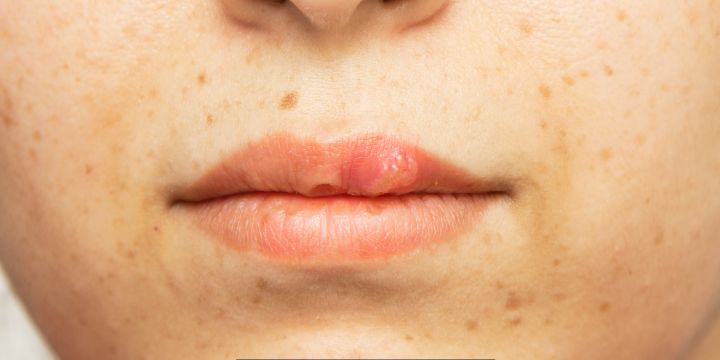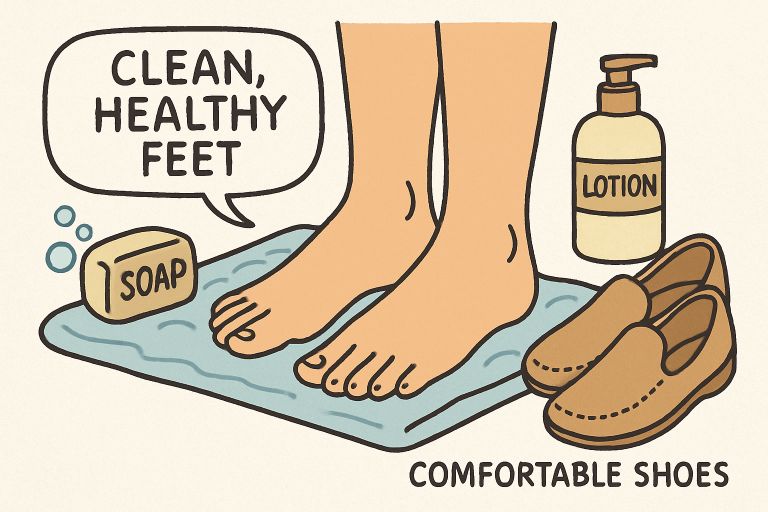Unmasking HSV: Pioneering Breakthroughs and the Dawn of a New Era in Herpes Simplex Prevention
Key Takeaways
- Preventing herpes simplex virus (HSV) is an ongoing challenge, driving new vaccine and therapeutic research.
- Recent advancements in clinical trials promise breakthrough approaches to protect high-risk groups.
- Understanding the global impact of HSV highlights the need for accessible and effective prevention strategies.
Table of Contents
- What Is Herpes Simplex Virus?
- Why Prevention Is Crucial
- Recent Advancements in Vaccine Research
- Clinical Trials Shaping the Future
- Public Health Impacts of HSV Prevention
What Is Herpes Simplex Virus?
Herpes simplex virus is one of the world’s most common viral infections, affecting people regardless of age, gender, or geography. HSV is primarily classified into two distinct types: HSV-1 and HSV-2. HSV-1 most often leads to oral herpes, causing cold sores around the mouth and face, but it can also be found in the genital area. HSV-2, on the other hand, is more commonly linked to genital herpes. Both types are highly contagious, typically spreading through close skin-to-skin contact, and can be transmitted even when there are no visible symptoms.
The scientific community continues to seek more effective measures for fighting HSV, from prevention to improved care after infection. As understanding of HSV’s impact has grown, so too has the push for innovative prevention tools. Of particular interest are the efforts underway to develop new vaccines and therapeutic approaches. A strong example of this momentum can be seen in current HSV clinical trials, which are exploring state-of-the-art vaccine technologies. These studies are not only potential game changers for individuals who are facing recurrent outbreaks of illness, but they also represent a significant glimmer of hope for global progress in effectively addressing a persistent and challenging public health issue that affects countless lives around the world. Furthermore, their findings could pave the way for innovative treatment options that may reduce the frequency and severity of these outbreaks. As researchers continue to advance their work, we may soon see tangible benefits that enhance the quality of life for affected populations.
Clinical Trials Shaping the Future
Clinical trials provide the backbone for every breakthrough in HSV prevention. Each study serves as a test bed for testing hypotheses, evaluating safety profiles, and assessing real-world effectiveness. With new candidates emerging, current HSV clinical trials are sharpening our understanding of what it takes to both prevent and treat HSV. These studies are often designed to include high-risk populations, such as individuals who have frequent outbreaks or those at increased risk for severe symptoms. Researchers measure everything from immunogenicity (how well the vaccine activates the immune system) to side effects and, ultimately, the vaccine’s ability to prevent infection or recurrence.
What sets many of today’s trials apart is their global scope and the collaboration involved. International partnerships include gathering data from diverse participants, reflecting a spectrum of ages, ethnicities, and pre-existing health conditions. This approach enhances the robustness of the findings and increases the likelihood that successful solutions can be adapted for use across different populations. It’s also important to note that each trial, whether positive or negative, helps build the foundation for smarter and more targeted future research. So far, initial data from several ongoing HSV clinical trials are fueling excitement for the potential arrival of an effective and accessible HSV vaccine.
Why Prevention Is Crucial
The need for more effective prevention strategies extends beyond the physical symptoms of HSV. For some, especially those who experience frequent outbreaks, herpes can be a source of chronic pain, discomfort, and embarrassment. The risk of transmitting HSV unknowingly to partners creates anxiety and can affect intimacy and relationships. Looking at the broader health landscape, HSV also leads to more serious complications. Neonatal herpes, for instance, can occur when a pregnant woman with an active infection passes the virus to her baby during delivery. This form of disease, though rare, can be life-threatening for infants and requires immediate intervention.
HSV-2, in particular, is known to increase susceptibility to HIV infection. The presence of HSV lesions creates pathways for HIV to enter the body, and managing HSV effectively can help control the broader spread of other sexually transmitted infections. According to the Centers for Disease Control and Prevention, more than half of American adults carry some form of HSV, making it one of the most widespread infections worldwide. Despite this, the public conversation around herpes often remains hushed, leading to stigma and confusion and making it harder for people to access accurate information and resources. Modern research points to the fact that up to 90% of people with HSV may not realize they have it, underlining the importance of broad, accessible preventive solutions. Reducing the burden of HSV could transform public health outcomes for millions, decrease healthcare expenses, and ultimately enhance well-being for both individuals and communities.
- Long-term HSV infections can impact emotional well-being, relationships, and self-confidence.
- At-risk populations, such as immunocompromised individuals and pregnant women, may face serious health risks from HSV.
- Widespread prevention offers significant benefits, including lowering overall infection rates and minimizing complications.
Recent Advancements in Vaccine Research
For decades, herpes vaccine development has faced repeated roadblocks, with potential candidates falling short of providing full protection or achieving long-term efficacy. The tide is now turning, as innovative vaccine platforms are advancing into the spotlight. Emerging technologies, such as mRNA-based vaccines, are showing tremendous promise. According to a recent science news report, these new strategies are modeled after the highly effective vaccines used against recent viral pandemics and work by teaching the immune system to identify and fight off HSV more efficiently.
The preclinical trials using mRNA vaccines have demonstrated strong immune responses in animal models, preventing the onset of both HSV-1 and HSV-2 infections after exposure. Some of these vaccine candidates have now transitioned into human trials, where early data is encouraging scientists and public health experts alike. Another key development is that many of these vaccines are being designed not just to prevent infection in HSV-negative individuals but also to help those already infected by reducing the frequency and severity of recurrences. This innovative, dual-use approach holds the potential for wider health applications and improved quality of life.
The combination of robust science, increased funding, and urgent global demand is pushing herpes research further than ever before. Shortly, the lessons learned from these vaccine trials may inform how we address other persistent or emerging viral infections as well.
Public Health Impacts of HSV Prevention
Society benefits immensely when a common yet persistent infection, such as herpes simplex virus (HSV), is effectively controlled. Effective prevention lowers the rate of transmission, reduces healthcare spending on complications and chronic management, and enables individuals to make informed health decisions without stigma. Because so many HSV infections are asymptomatic, controlling spread is especially complicated, making mass vaccination strategies and accessible diagnostics crucial in public health planning.
As vaccines and new therapeutics progress through clinical development, healthcare systems and communities must be prepared to support rollout and education initiatives. Lowering HSV rates also protects the most vulnerable, from newborns to those who cannot mount strong immune responses. If current innovations succeed, the ripple effects may extend well beyond HSV, offering a blueprint for how to confront other complex infectious diseases.
Ultimately, the reduction in HSV-related anxiety and health complications could result in significant economic savings and an improvement in confidence and public dialogue regarding sexual health.














